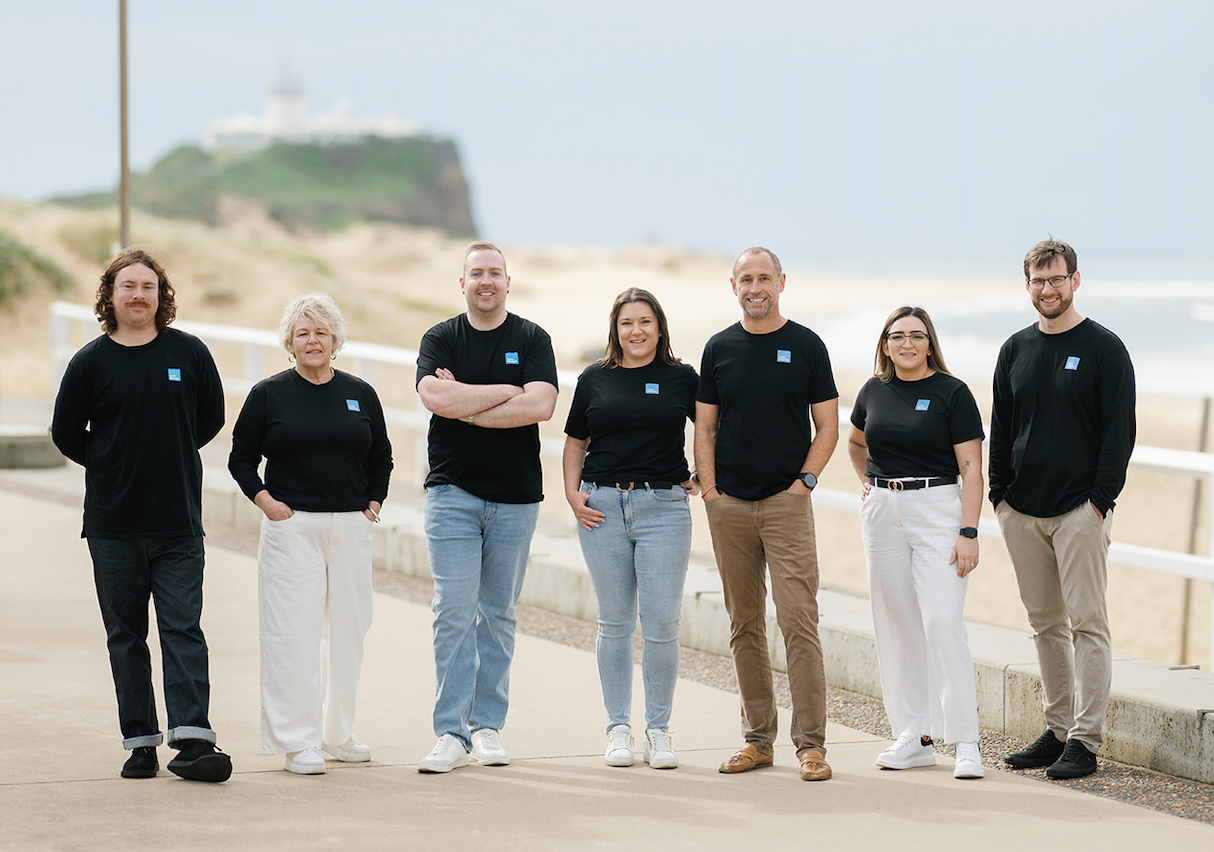Home Loans for Discharged Bankrupts in NSW: How to Qualify for Financing After Bankruptcy
This article is by Mortgage Brokers Newcastle NSW, your local home loan experts. Just get in touch here.
In New South Wales, property values have climbed steadily in recent years, with both metropolitan and regional markets facing tight supply and strong buyer demand. For those rebuilding after bankruptcy, this environment, combined with stringent lender policies and rigorous credit checks, can make homeownership seem out of reach.
That’s where discharged bankrupts' home loans come in. These specialised financing options offer tailored criteria, support for credit rehabilitation and a clear pathway toward owning your own home.
By understanding how these products differ from standard mortgages and what lenders look for, you can position yourself for success even after a bankruptcy discharge. In this guide, we’ll explore eligibility requirements, lender considerations and practical steps to access these loans.
Take the First Step Today.
NSW mortgage brokers specialising in home loans for discharged bankrupts, rebuilding credit, meeting lender criteria and securing optimal terms. Serving Newcastle and wider NSW. Call
(02) 4920 6468 or visit www.mortgagebrokersnewcastle.com.au to start your tailored application.
Can you get a home loan after bankruptcy in New South Wales?
Yes, you can apply for a home loan after bankruptcy, or after getting discharged from bankruptcy.
An individual is considered discharged bankrupt once they’ve completed the three-year bankruptcy term and been formally released from most debts and insolvency restrictions. After discharge, they’re free to apply for most forms of credit, including a home loan in NSW.
Under Australian law, bankruptcy ends automatically three years after filing, although the record remains on the credit file for up to five years from registration. After discharge, applicants may approach lenders; however, most will expect 12–24 months of a clean financial history, alongside a sufficient deposit, before granting approval.
Eligibility Criteria for Discharged Bankrupt’s Home Loans
Before you submit an application, it’s crucial to understand exactly what lenders will look for in a discharged bankrupt candidate. These benchmarks serve as proof that you’ve rebuilt financial stability and can comfortably meet ongoing mortgage commitments.
- Formal discharge: You must have completed the bankruptcy term and received an official discharge from the
Australian Financial Security Authority (AFSA) (formerly the Official Receiver).
- Post-discharge waiting period: Most lenders require at least 12–24 months of credit history after discharge, demonstrating consistent on-time repayments.
- Deposit size: A minimum of 10–20% of the property value; larger deposits can improve approval odds and reduce borrowing costs.
- Serviceability and income: Stable employment or reliable income streams, with sufficient surplus after living expenses to cover repayments.
- Credit file status: No new defaults, judgments or adverse listings; evidence of responsible use of any re-established credit accounts.
- Loan-to-Value Ratio (LVR): Typically capped at 80%; borrowing above this often triggers lenders mortgage insurance.
- Specialist lender requirements: Some banks and credit unions offer tailored products through brokers or specialist teams.
Work with a mortgage broker to carefully compare options.
- Additional security or guarantees: Family guarantees or co-applicants can bolster your application if the deposit or serviceability criteria are marginal.
Boost Your Approval Odds.
With Mortgage Brokers Newcastle, you gain a dedicated advocate: we’ll help you build a compliant deposit strategy and submit a rock-solid application for discharged bankrupts’ home loans. Proudly serving Newcastle and wider NSW. Call
(02) 4920 6468 or visit www.mortgagebrokersnewcastle.com.au to learn more.
How to Apply for a Discharged Bankrupt’s Home Loans
With the groundwork for eligibility laid, let’s break the process into clear, actionable steps. Below is a roadmap covering each approval milestone, typical timelines and the fees you’ll need to budget for.
1. Confirm your discharge and waiting period
Ensure you’ve received an official discharge notice from the AFSA and note the exact date your bankruptcy ended. Most specialist lenders in NSW expect 12–24 months of clean credit history after that date before granting conditional approval, so build this into your schedule.
2. Review and rebuild your financial profile
Aim to save a minimum 10–20% deposit while avoiding new defaults or missed payments on any re-established credit accounts. You’ll need to demonstrate stable income and a surplus buffer.
Lenders often model living expenses using Household Expenditure Measure (HEM) benchmarks, so factor in bank account or account-keeping fees as you plan.
3. Gather your documentation
Prepare your discharge papers, payslips (usually the last three months), bank statements (last six months), proof of savings and identification documents. Valuation and application fees, typically ranging from $200 to $600, are payable upfront.
Therefore, request fee schedules from prospective lenders before submitting your application.
4. Engage a specialist mortgage broker
A broker experienced with discharged bankrupt clients can compare specialist products and negotiate on your behalf, often at no direct cost (they earn commission from lenders). Allow 1–2 weeks for them to assess your profile, shortlist suitable loans and secure you a conditional approval in principle.
5. Seek pre-approval
Submit a conditional approval or pre-approval application with your chosen lender; this usually takes 7–14 days for assessment. You’ll pay any lender application fee, which is typically around $300–$600, and cover a valuation fee if it has not already been paid.
Once approved in principle, you know your borrowing power and any outstanding conditions.
6. Submit your formal application
Provide any outstanding information (e.g., updated bank statements or employment confirmations) and pay establishment fees—often $600–$1,000—and legal or settlement fees. Formal approval can take another 2–4 weeks, depending on the lender’s internal turnaround times and the complexity of your file.
7. Settlement and drawdown
After approval, coordinate with your solicitor or conveyancer to complete title searches, pay stamp duty and any lender’s mortgage insurance (if applicable). Settlement typically occurs 4–6 weeks after approval; once finalised, the loan funds are released and you begin your regular repayment schedule.
How to Improve Your Home Loan Approval Chances After Bankruptcy
It’s always best to know a few essential tips to get you back on track and help improve your chances of getting approved. Here are some of them:
- Rebuild your credit score and credit history: Timely payments, low credit utilisation, and avoiding new unsecured loans will help you rebuild your credit rating.
- Save a strong deposit: The closer you are to 20% or more, the stronger your application will be. It also reduces your monthly repayment.
- Avoid high-risk credit products: Cancelling credit cards, taking out payday loans, or using short-term personal loans can negatively impact your chances. Avoid new debts leading to a loan application.
- Focus on job stability: Lenders view frequent job changes as a risk. Keeping consistent employment improves your borrowing power.
- Work with a mortgage broker: Brokers know which lenders offer package home loans or low doc home loans that suit your profile.
Unlock Loan Specialist Guidance. Don’t navigate post-bankruptcy lending alone. Our NSW mortgage brokers will analyse your financial profile, negotiate with specialist lenders and fast-track your conditional approval. Serving Newcastle and across NSW. Call us now at (02) 4920 6468 or head to www.mortgagebrokersnewcastle.com.au for a free chat.
Frequently Asked Questions (FAQs)
How can I get a personal loan as a discharged bankrupt?
Try lenders that specialise in
bad credit loans. Your income and credit repayments since discharge will be key.
How much can I borrow if I'm a discharged bankrupt?
This depends on your income, deposit size, and the lender's lending limits. Some allow up to 80% LVR.
How much will my personal loan cost?
Expect interest accrued between 10% and 20%. Review the comparison rate for the actual cost.
Can I apply for a loan if I'm on Centrelink benefits?
Yes. Some lenders count long-term payments, such as Parenting Payment or Disability Pension. You may need a coapplicant.
How to increase approval chances?
Wait at least 12 months post-discharge, avoid further defaults, and apply through experienced brokers.
Conclusion
By applying the insights in this guide, you’re ready to pursue home loans for discharged bankrupts and rebuild your future in 2025’s vibrant NSW property market.
Mortgage Brokers Newcastle - serving wider NSW, including Newcastle - offers personalised advice and practical steps to help you qualify and apply for a loan with confidence. Reach out now for a free consultation. Call
(02) 4920 6468 or visit
www.mortgagebrokersnewcastle.com.au and take the next step toward owning your home.
Chat to our Newcastle experts today!
We're here to help you secure a better home loan, refinance or invest - just get in touch below.
Request A Callback
Prefer a quick phone call or email, just get in touch with us on the below.

